Baby Basics

Sleepless nights, dirty diapers and a whole lot of cuteness are expected to be the norm when the baby arrives. But what about dry skin, a lack of smiles and that strange soft spot? Don't worry! All of that is normal, too. New parents might be surprised when they find out a few things they, and many people, didn't know about newborns.
My Funny Face
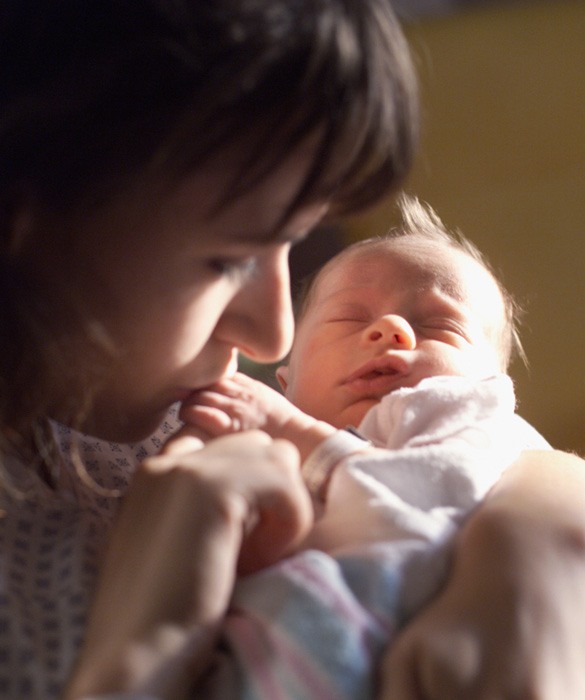
Not all babies come out as cute as a button. "It's common for a newborn to have a 'smooshed' nose or even have an earlobe folded over from the position he had in the womb," said Dr. Ari Brown, pediatrician and author of several parenting books, including "Baby 411." "But after a few weeks, the 'conehead' shape and other temporary deformities will normalize."
All Smiles ... In Time
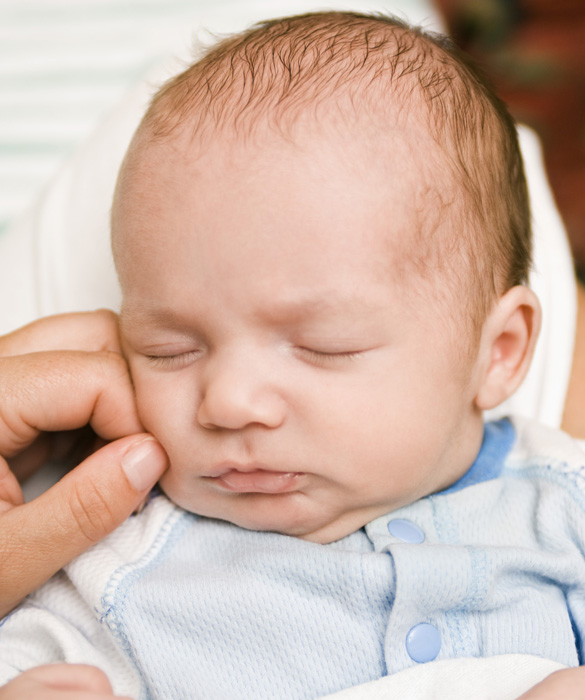
Just because your newborn doesn't smile the first few weeks doesn't mean he's unhappy. "Babies start to smile with a purpose at around 6 weeks of life," said Brown. "This is when a baby realizes that smiling at mom, dad or another member of his fan club will get a response. It's a sign of normal social development." Keep smiling at your baby, and pretty soon he'll be all smiles too.
RELATED: Milestones for Baby's First Year
Silky Smooth

The old saying "as soft as a baby's bottom" isn't always true. "Babies have soft, doughy skin because it hasn't endured the wear and tear that water, sun and life in general brings," said Brown. "But cooler and drier weather conditions outside of the womb will dry out a baby's skin just like anyone else's." Make sure to keep your baby's skin hydrated and moisturized.
A New Language
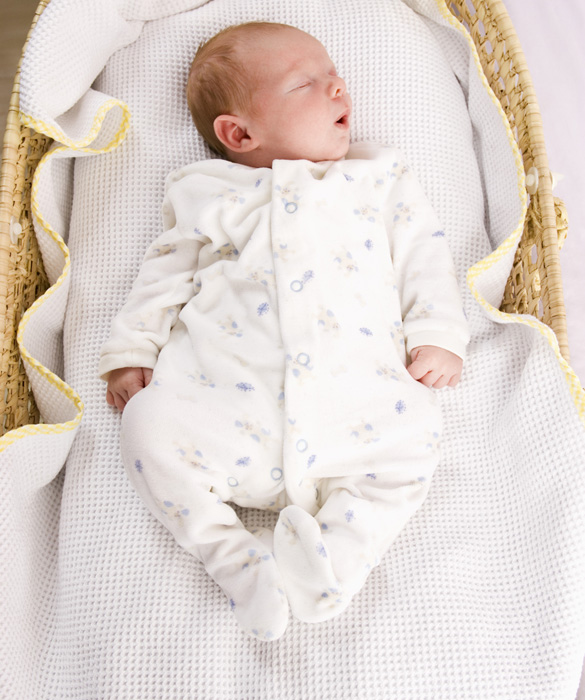
Although new parents would love newborns to just say what they want or feel, that won't happen for a while. "Babies cry for two to three hours a day. This is normal," said Brown. "Parents will learn that some cries mean 'poopy diaper,' 'I'm exhausted,' 'I'm starving,' et cetera. Just give it a couple of weeks." Until then, be patient with yourself as you get to know your little one.
Sleepy Time

Some parents boast that their baby is a good sleeper, but that may not necessarily be the case. Certain babies are better at settling themselves when they wake up (which they do) or have more easy-going dispositions. "By definition, sleeping through the night is six hours of uninterrupted sleep," said Brown. "That usually doesn't happen until at least 3 to 4 months of age … but it will feel great when it happens."
RELATED: My Baby's First Gourmet Meal
Baby Sneezes

A sneezing baby? Don't run to the doctor just yet. It's normal for babies to sneeze a lot. "Newborns need to clear the secretions from their noses, and they don't know how to blow," said Brown. "They also have swollen nasal passages for the first couple of weeks of life. Sneezing, snorting, snoring are all normal and protective mechanisms."
Chilly Willy

A natural instinct is to warm up a baby's cold hands and feet. But before piling on the blankets or cranking up the heat, know this chilled state is very common for babies. "Newborns have poor circulation in the first few weeks of life, so the hands and feet may be cooler and blueish," said Brown. Once they become more mobile and start moving around, they will naturally warm up.
Wake Up Call
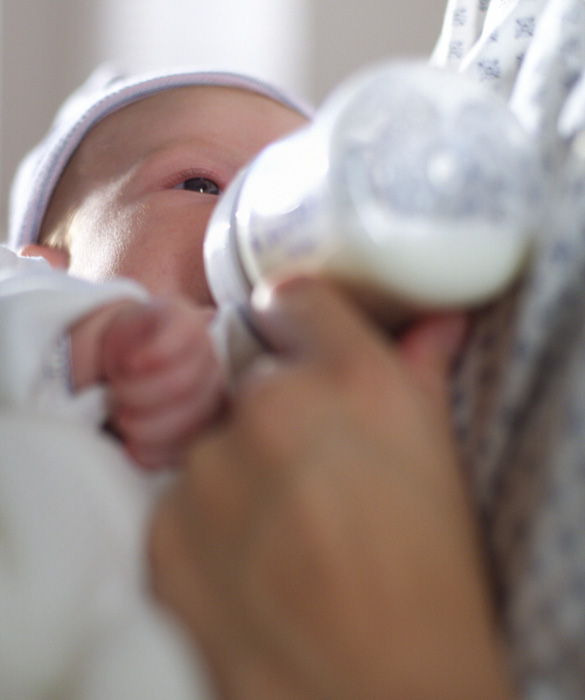
While a baby's nap time may be relaxing for parents, they shouldn't let it go on too long—not if it prevents the baby from eating. It's recommended that during the first two weeks of a baby's life a parent wake him up at night if he hasn't eaten in more than four hours, according to Brown. During the day, the limit should be three and a half hours. "Babies need to eat often to grow," he said. "And if a mom is nursing, it's important for the baby to eat often to establish mom's milk supply."
RELATED: Boost Baby's Development
Extra Parts
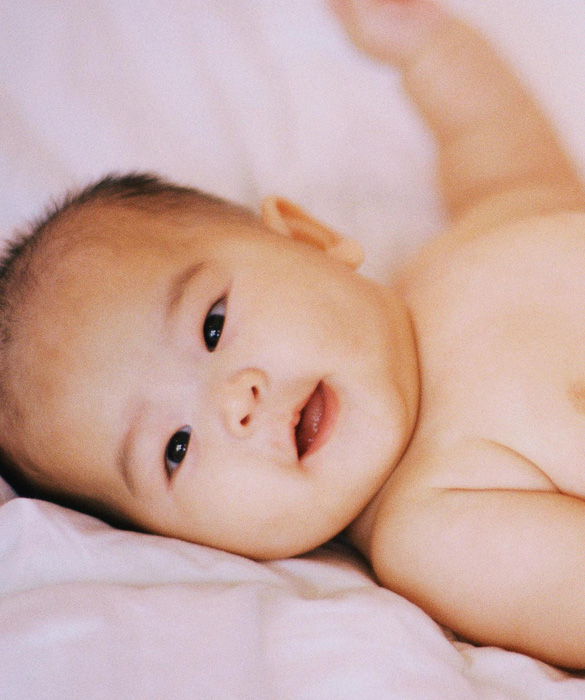
The umbilical cord will fall off in two to four weeks. Until it does, parents need to take good care of this little extra bit. "Just keep it clean and dry so it falls off appropriately," Brown said. "It needs to dry up to fall off and you want to keep it clean to prevent infection."
The Soft Spot

A lot of parents worry about the soft spot on a baby's head, but there's no need to fret. "Sure, it feels kind of weird, but it is fine to touch it," said Brown. "It's just a gap between the skull bones, which closes around 9 to 18 months of age. The only risk of injury is a direct puncture or stab to that area. Touching is just fine."



